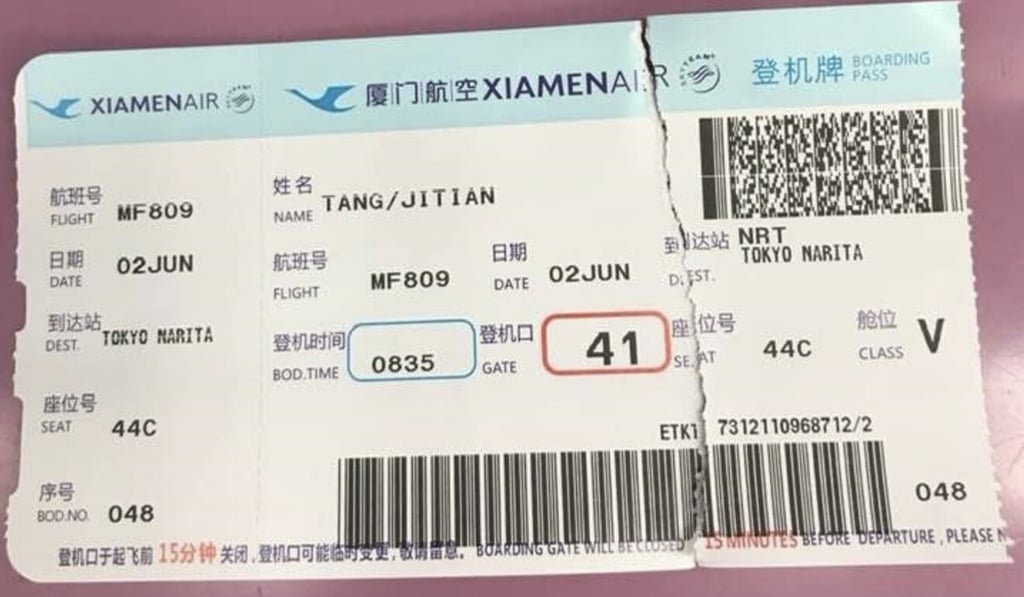Human rights activist barred from leaving China to care for ill daughter
- Tang Jitian says he was stopped from boarding a flight from Fuzhou to Tokyo on the grounds he would ‘endanger national security’
- His 25-year-old daughter has tuberculosis meningitis and is in a coma in hospital

Tang was stopped from boarding a flight from Fuzhou, in China’s southeastern Fujian province, to Tokyo on Wednesday. He said law enforcement authorities told him he could not leave the country on the grounds that he would “endanger national security”.
“The decision was made by the Beijing Municipal Public Security Bureau but the Fuzhou authorities refused to give me any more information,” Tang said.
“I’m physically and mentally exhausted over my daughter’s illness for the past month and a half. Now I can’t even see her in hospital – there’s no words to describe how I feel other than deep regret,” he said. “If it wasn’t for my girl, I’d have long given up on the hope of ever leaving China again.”

The 53-year-old former human rights lawyer was travelling back to Beijing from Fuzhou on Friday. He said he had spent a month trying to get permission to leave China on humanitarian grounds, so he could visit his daughter, but had been unsuccessful, though he received a visa for Japan about two weeks ago.
Tang had his licence to practice law revoked in 2010 and has since made over a dozen attempts to leave mainland China, all of them blocked – including his last bid in 2017 when he tried to travel to Hong Kong for medical treatment.